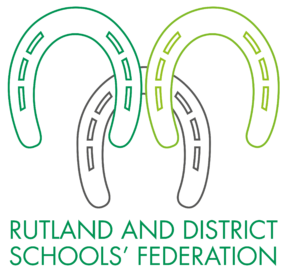As a Federation we are committed to promoting the welfare, safety and personal development of our students. Consequently, we realise the importance of staying up-to-date with the latest safeguarding advice and guidance issued by the government (Keeping Children Safe in Education, September 2024; Working Together to Safeguard Children, July 2018 (updates in December 2020 and July 2022); Prevent Duty Guidance, July 2015 (updates in April 2021); and Female Genital Mutilation Risk and Safeguarding, January 2017)
The Federation Safeguarding Policy clearly sets out our approach to dealing with safeguarding issues and is based on the core values of Prevention, Protection and Support. This overarching policy is complemented by the School specific policy.
We would like to take this opportunity to remind you of the safeguarding procedures which exist within the Federation. The Federation ensures that all staff (including temporary, supply, volunteers and peripatetic renew their safeguarding training annually. This means that their knowledge is fresh and up-to-date in what can be a complex and fast moving area of education. The training makes explicit reference to:
- Our systems which support safeguarding, including the staff Safer Code of Conduct, the role of the designated safeguarding lead (DSL), the Behaviour Management Policy, and the safeguarding response to children who go missing from education
- The early help process (known locally as the common assessment framework) and their role in it, including identifying emerging problems, liaising with the DSL, and sharing information with other professionals to support early identification and assessment
- The process for making referrals to local authority children’s social care and for statutory assessments that may follow a referral, including the role they might be expected to play
- What to do if they identify a safeguarding issue or a child tells them they are being abused or neglected, including specific issues such as FGM, and how to maintain an appropriate level of confidentiality while liaising with relevant professionals
- The signs of different types of abuse and neglect, as well as specific safeguarding issues, such as county lines, child criminal exploitation (CCE), child sexual exploitation (CSE), child criminal exploitation, child on child abuse, Female Genital Mutilation (FGM) and radicalisation.
If concerns are raised about the welfare or safety of a child the designated safeguarding lead (DSL), or in an emergency situation the individual member of staff, must give careful consideration as to whether a referral needs to be made to children’s social care. If this course of action is taken the School will usually inform parents, unless there are compelling reasons for not doing so.
Once a referral has been made the School works closely with a range of relevant agencies in order to bring about the best outcome for the child.
Review of our Safeguarding approach
Policies are reviewed annually and their implementation is regularly reviewed by governors. In the last 12 months the governor responsible for safeguarding has visited the DSL and written a report which was scrutinised by governors.
Our Safeguarding newsletters can be found below:
| Topics Covered | Newsletter Download |
|---|---|
| 2025 – 2026 | |
| TERM 2: Parent conflict and relationship stress, worrying about body image and food | Download |
| TERM 1: Social media, Mental health and wellbeing | Download |
| 2024 – 2025 | |
| TERM 5: Group chats: A message to parents and carers, Digital footprints, Mental Health: coping with thoughts and feelings | Download |
| TERM 4: Childline: Report, Remove; WhatsApp; Prevent; Supporting children through bereavement, Managing anxiety and Community safety and anti-social behaviour | Download |
| TERM 3: Tips and advice to help keep your children safe, Pantosaurus. | Download |
We are an Operation Encompass School.
Further information can be found in the School Prevent Strategy or by downloading the Channel information leaflet here.
If you are concerned that a young person is in danger of radicalisation or is being radicalised please contact:
Kelly Jackson, Catmose Primary Prevent Co-ordinator on 01572 770066
Leicestershire Police Prevent Engagement Team (PET) preventengagement.team@leicestershire.pnn.police.uk 0116 248 6726
Leicester Prevent Co-ordinator prevent@stphilipscentre.co.uk 0116 273 3459 or 07403 727727








